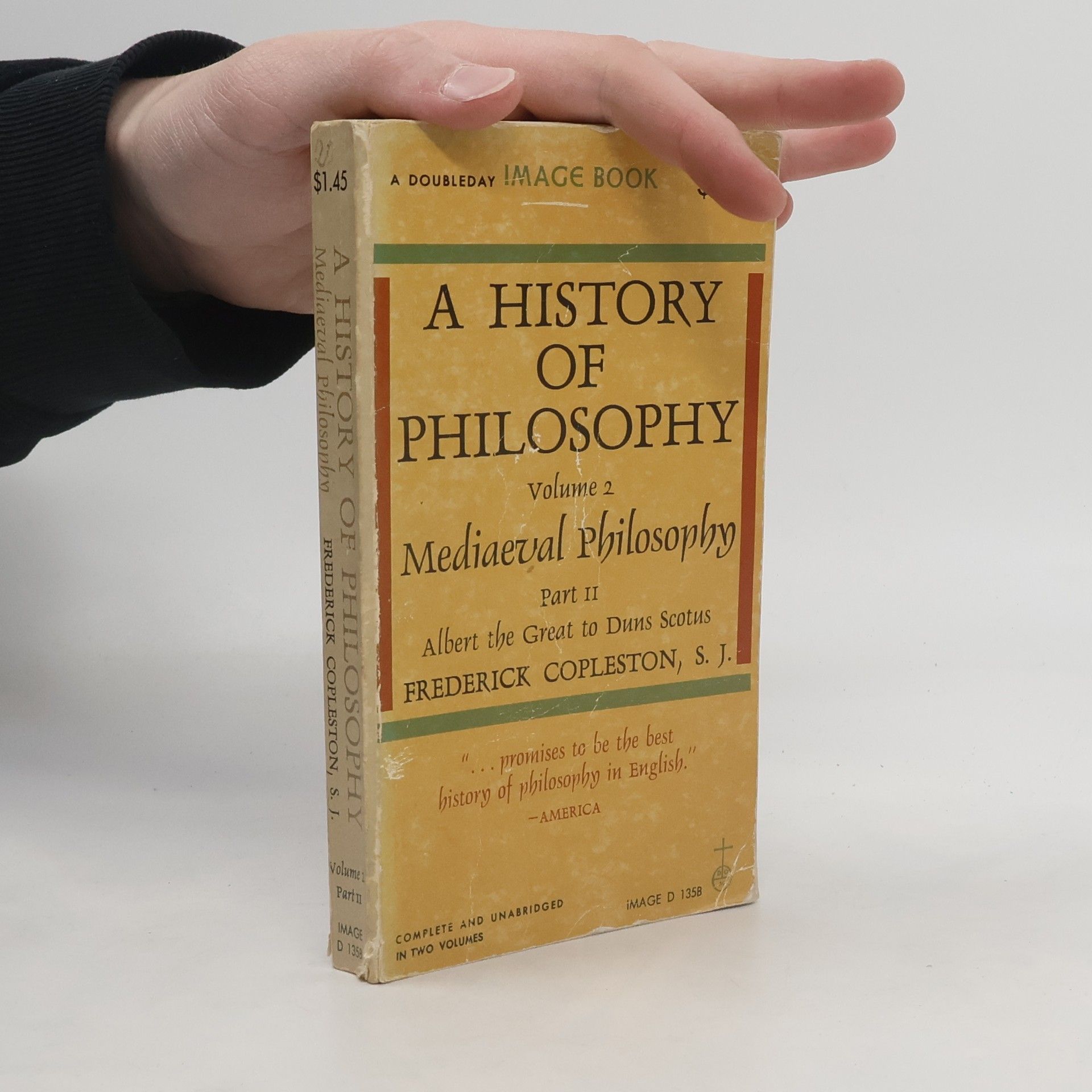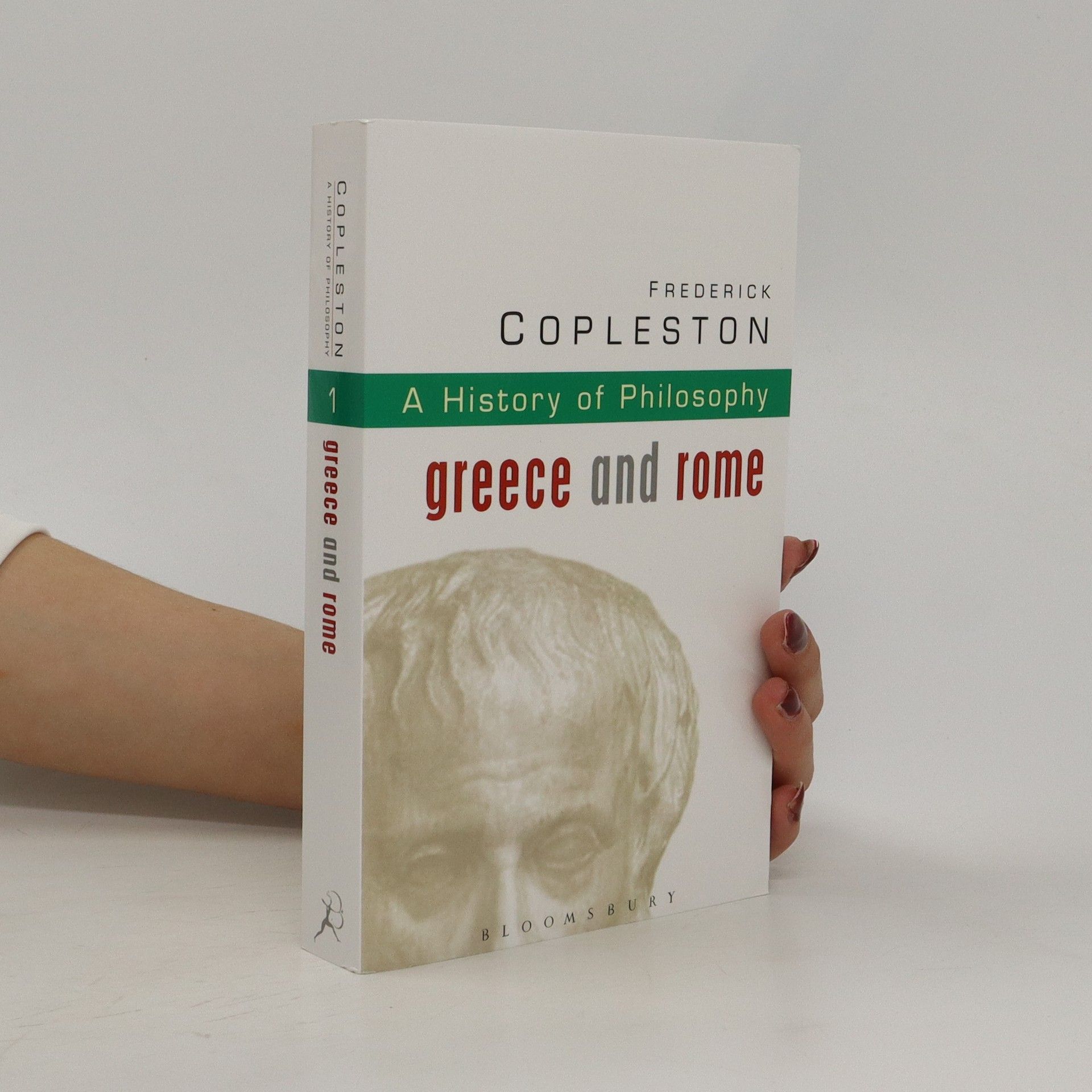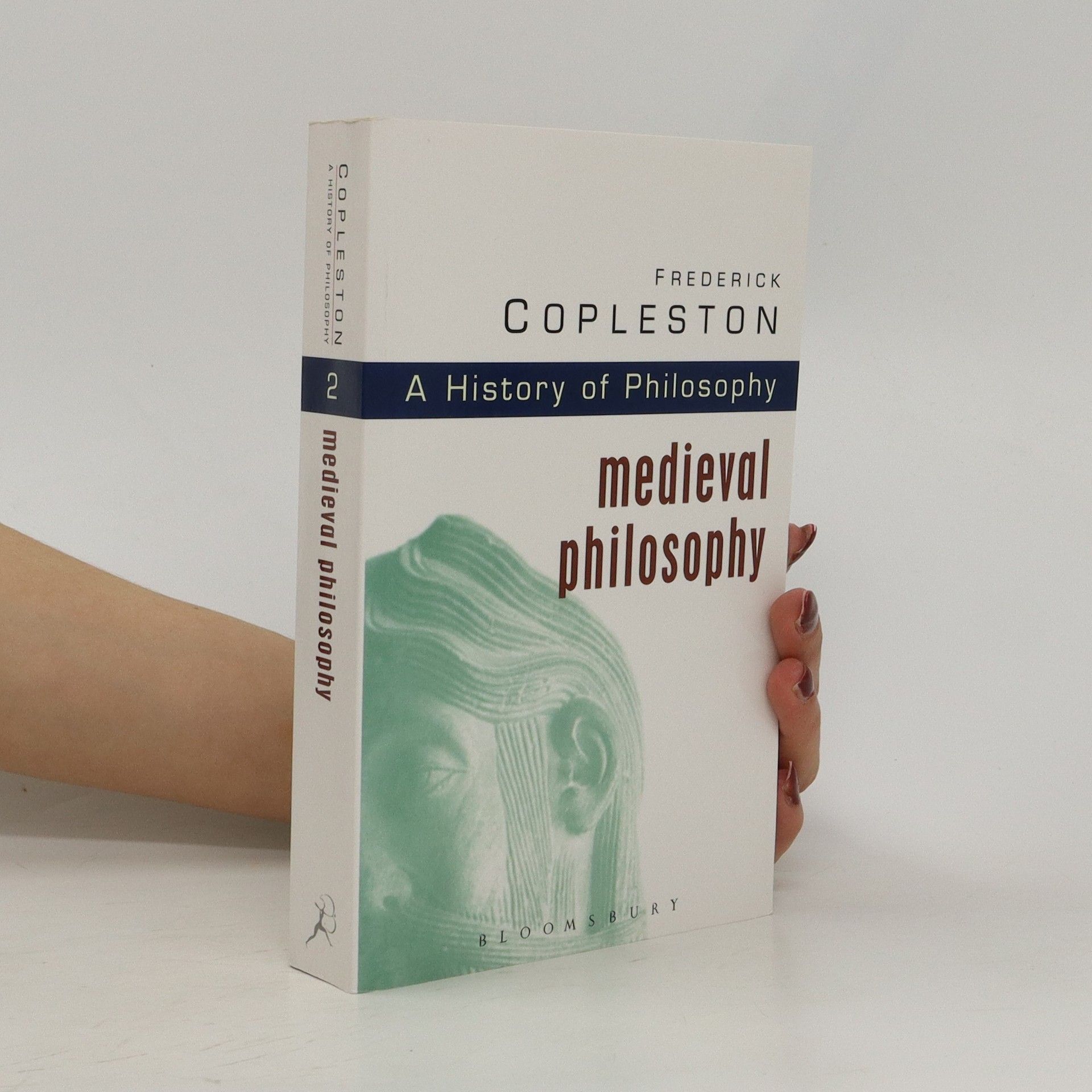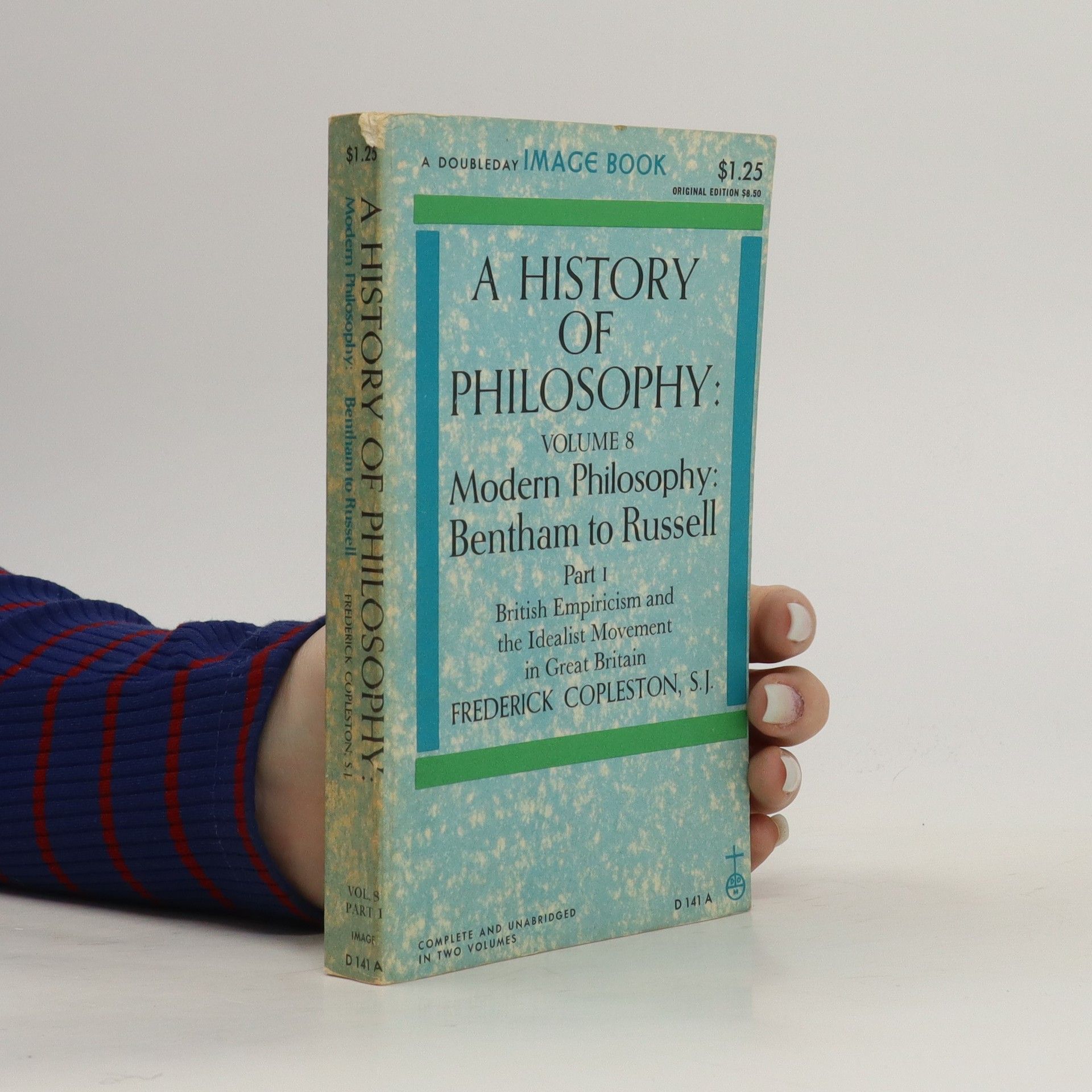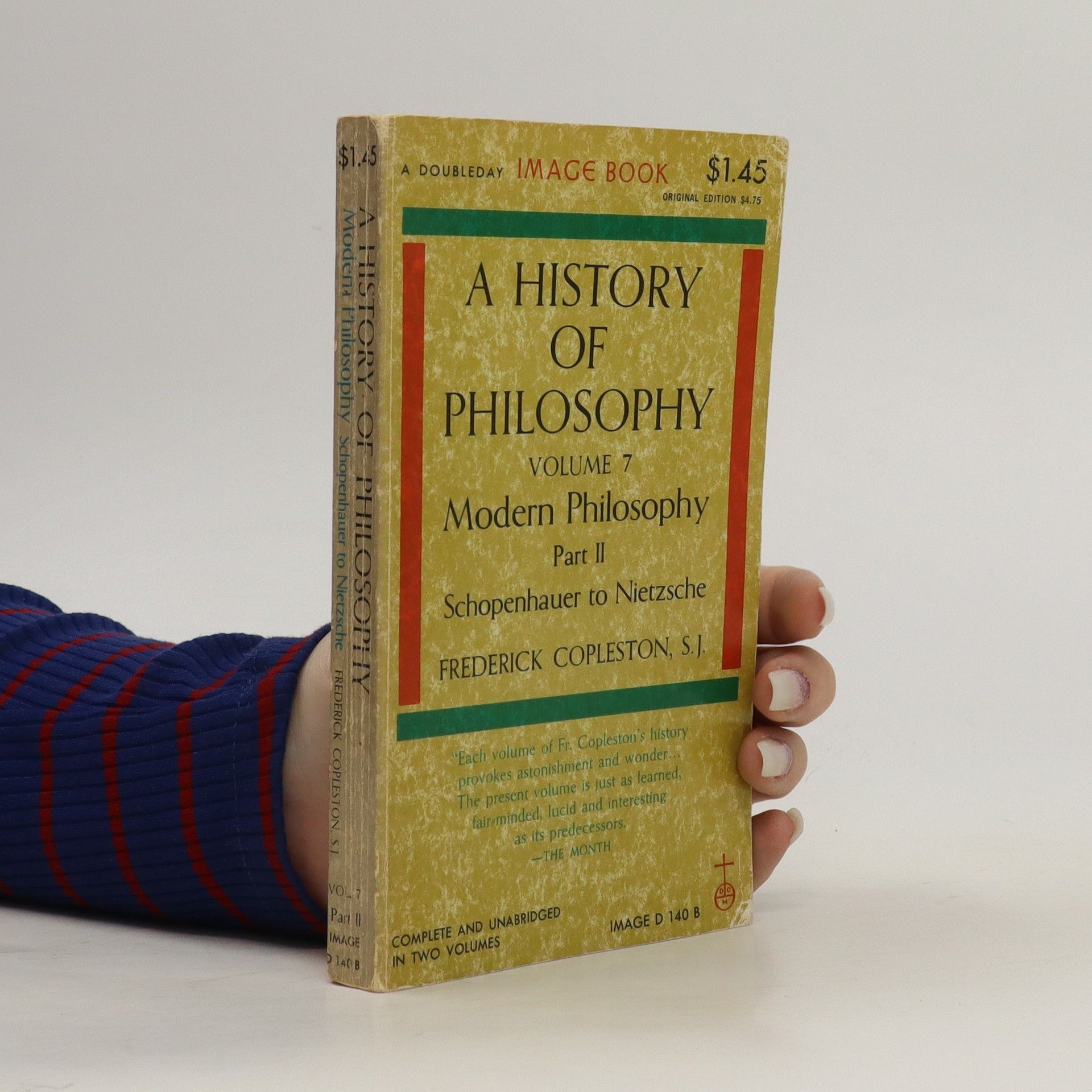A history of philosophy. Volume 2, Medieval philosophy
- 624pagine
- 22 ore di lettura
Copleston, an Oxford Jesuit and specialist in the history of philosophy, created his history as an introduction for Catholic ecclesiastical seminaries. The 11-volume series gives an accessible account of each philosopher's work, and explains their relationship to the work of other philosophers.




